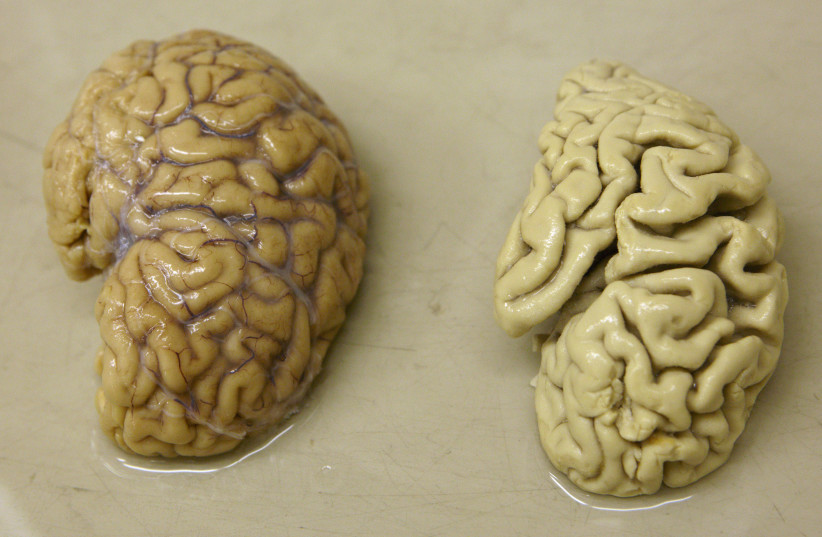Dolphins stranded in Scottish coastal waters showed signs of Alzheimer's disease, marking the first time a disease similar to Alzheimer's has been observed outside of humans, according to a new peer-reviewed study.
The study, published in the European Journal of Neuroscience, examined five different species of odontocetes (toothed whales), including Risso’s dolphins, long-finned pilot whales, white-beaked dolphins, harbor porpoises and bottlenose dolphins.
Researchers from the University of Glasgow, the Universities of St Andrews and Edinburgh and the Moredun Research Institute found that four animals from different dolphin species showed signs of changes in their brains associated with Alzheimer's disease in humans.
The study found amyloid-beta plaques (clumps of naturally occurring proteins that collect between neurons and disrupt cell function) in the brains of the dolphins, as well as a number of other signs of Alzheimer's.
The brain changes could explain why some dolphins become stranded, as a group leader with these changes may become confused or lost, although the researchers were unable to confirm if the changes result in cognitive deficits like they do with humans.

More research needed to understand what's happening to dolphins
“These are significant findings that show, for the first time, that the brain pathology in stranded odontocetes is similar to the brains of humans affected by clinical Alzheimer’s disease," said lead author Dr Mark Dagleish from the University of Glasgow in a press release. "While it is tempting at this stage to speculate that the presence of these brain lesions in odontocetes indicates that they may also suffer with the cognitive deficits associated with human Alzheimer’s disease, more research must be done to better understand what is happening to these animals.”
Co-author, Professor Frank Gunn-Moore from the University of St Andrews added "I have always been interested in answering the question: do only humans get dementia? Our findings answer this question as it shows potential dementia associated pathology is indeed not just seen in human patients. This study is also a great example of both different research institutes, but also different branches of the Life Sciences working together.”
Professor Tara Spires-Jones, University of Edinburgh noted that the researchers were "fascinated to see brain changes in aged dolphins similar to those in human ageing and Alzheimer’s disease. Whether these pathological changes contribute to these animals stranding is an interesting and important question for future work.”
